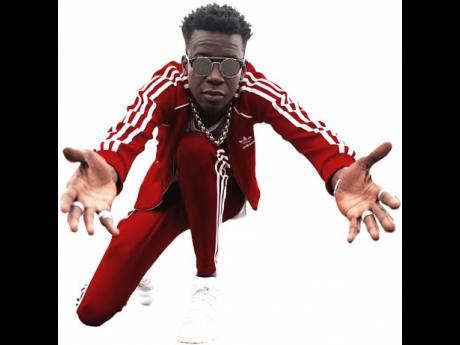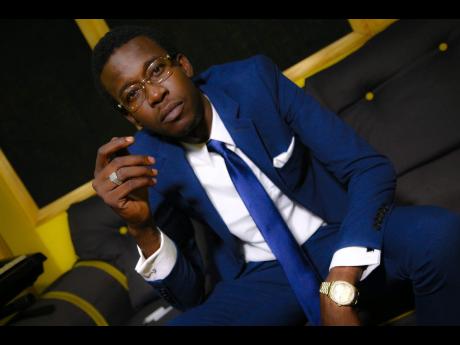Five Questions with Chi Ching Ching - From slangs to songs
Chi Ching Ching was very busy this summer as he toured with Grammy award-winning artiste and good friend Sean Paul for the Rock Di World tour. The dancer-turned-recording artiste arrived on the scene in the early 2000s and caught the attention of the dancehall fraternity with his lingo.
The self-crowned slang spitter was not going to allow himself to be known as a one-hit wonder, putting out numerous singles with catchy phrases, including One Knock, Roast or Fry (Breadfruit), Way Up Stay Up featuring Beenie Man and Popcaan, and Rope.
Rock Di World rewarded Chi Ching Ching with a breakthrough into the global market, evolving into a tour following its remix, which featured international voices - producer Fatman Scoop, Nigerian artiste Pantoranking, and Ghanaian artiste Stonebwoy.
After having a successful summer, Chi Ching Ching, born Radion Beckford, is excited for the release of his debut album, Turning Tables, which is to be released today. He said, "It is an album done for the world featuring mixed genres, a diverse arrangement of music and skits that shows that I have not and will not put myself within any boundary."
What life lessons have you learned over this past year?
The tour was a life-changing experience. Many persons in the industry know Chi Ching Ching style - more time, I'm just loud. The interaction with the people and cultures during the tour has taught me that sometimes I have to calm down. It has taught me humility. I have also learnt so much about the industry and production, especially how to release a song properly.
Describe your creative process.
My creative process involves linking up with friends at a studio, where we can have a drink, hold a vibe, and throw ideas out. It does not work with just listening to a rhythm or a track then putting lyrics to it. The songs are usually created off the energy that is around, and when I get to do that, it comes out electrifying. For example, a song like Rice and Peas was done out of having the youth from my community around just holding a vibe. Sometimes everybody link up in the streets with Collo Collo squad, or everybody link up at a party, and the creativity flows, whether it be with the dance moves or lyrics.
What's the weirdest question a fan has ever asked you?
The weirdest question I was asked while travelling is if I come from Africa. The way I speak - the Patois along with the slangs - sometimes confuse them. I simply respond, 'No, I am Jamaican, I come from Jamaica'. Then, when I go back and use the Patois, the next thing that they will bring up is the name of the legendary Bob Marley, who comes from my country.
What tables have you turned throughout your dancer/deejay career?
Well, first off, turning tables means changing nothing to something. So I have used the title Turning Tables for my album to express to persons that it is time to elevate themselves, time to throw on your socks, brush off your shoes, and make a positive change.
Turning Tables relates to music (a selector playing music on turntables) but in this case, it doesn't mean the actual turning of tables. For me, it is giving thanks for the opportunity to be able to make changes. There are some persons that will never know what it is like to have nothing. Anything I make right now is a profit because I came in with nothing, and I have more to show for the work I have done over the years.
Do you think that it will be possible to copyright dance moves to protect our local dance talent in the future?
I have never tried, and I don't know if a dancer can or will ever be able to. Dancers create a lot of dance moves, and we want the world doing them. When people across the globe do the dances, it gives strength back to us. Most times, if someone from overseas searches for a dancehall move, it can still be traced to us, so even if we cannot copyright a move, it does not make sense we stop dance. Most street dancers make a living off teaching dance to persons locally and internationally, and if they don't, the whole thing will become stagnant.
The only way we can protect or provide support to local talent is to go into the communities and set up centres so that the dancers create more. They can operate and control the money that can then go back into the community. If the Government can give dancers this opportunity, it is then that people will come together and possibly protect more than just the talent, but impact the level of crime across the island.




